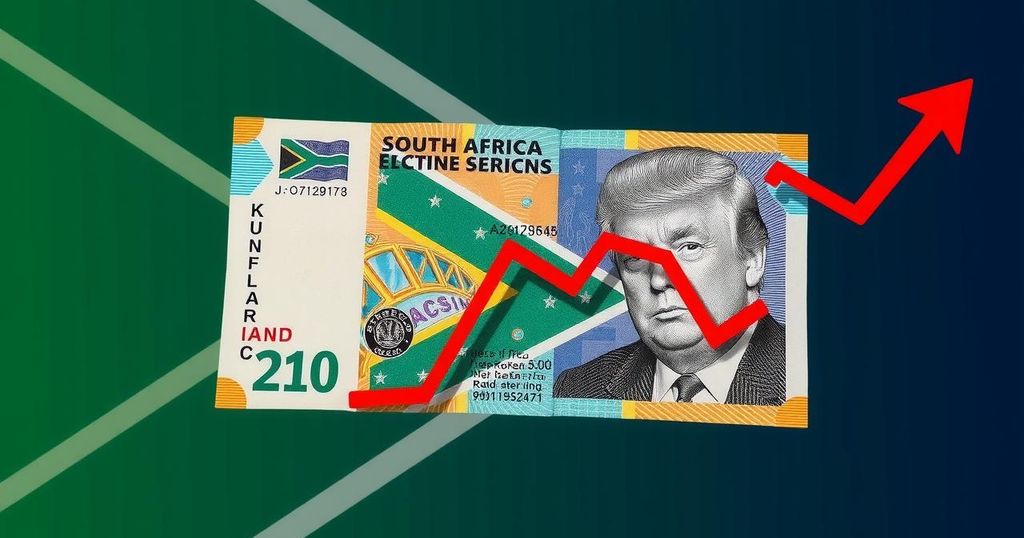South African Rand Declines Amid Trump Presidency Uncertainty

The South African rand fell to R17.81 per dollar, a 3% decrease, due to global investor anxiety surrounding Donald Trump’s potential return to the White House. This decline is affecting emerging markets amid increased geopolitical uncertainty and expected US tariffs. After the decline, the yield on South Africa’s 10-year government bond surged, reflecting poor investor sentiment and raising concerns about the future of the South African economy and exports.
On Wednesday, the South African rand experienced a significant decline, falling to R17.81 against the US dollar, which represented a 3% depreciation. This downturn is attributed to the apprehension among global investors regarding Donald Trump’s anticipated return to the presidency, which has incited a wave of risk aversion. Emerging markets such as South Africa are feeling the effects of this uncertainty, compounded by expectations of increased tariffs from the US government. Moreover, the yield on South Africa’s 10-year government bond rose by over 30 basis points, reaching 9.66%, a clear indication of deteriorating investor confidence in the region. Analysts have expressed concerns that a second Trump presidency could significantly disrupt South Africa’s economy, particularly putting at risk the African Growth and Opportunity Act (AGOA), which is crucial for supporting approximately 13,000 jobs in the country. Additionally, Trump’s potential tariff policies could adversely affect South African exports to the United States and may have wider implications for international trade dynamics.
The decline of the South African rand against the US dollar serves as a reflection of broader concerns regarding global economic stability. Political developments, particularly in the US, often reverberate through emerging market currencies and economies. The African Growth and Opportunity Act (AGOA) has been a cornerstone of trade relations between South Africa and the United States, providing significant employment opportunities in the South African textile sector. Changes in US trade policy could drastically alter this landscape, exacerbating economic vulnerabilities in South Africa.
In summary, the South African rand’s decline and its implications underscore the ripple effects of geopolitical events on emerging markets. With Donald Trump’s re-election posing potential threats to the South African economy, particularly through the jeopardization of AGOA and heightened tariff measures, both investors and policymakers must remain vigilant. The outcomes of these developments will likely shape the economic landscape for South Africa in the coming years.
Original Source: www.africa.com








